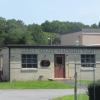Amid calls for impact fee, Cape board sets tax rate

Amid calls for the enactment of an impact fee, the Cape Henlopen school board at its July 13 meeting approved a slightly increased tax rate for the 2024 fiscal year.
Assessed home values went up 4.8% based on the amount of building in the area, said Cape Director of Finance Oliver Gumbs.
“Unfortunately or fortunately, whichever way you look at it, that means more kids, but at least some of the money is catching up,” Gumbs said.
Set at $4.02, the current tax rate is a slight increase from the 2023 fiscal year tax rate of $3.97. Under the rate, homeowners will pay $4.02 per $100 in assessed value of their homes.
Tuition for student services and the match for the enhanced minor capital improvement money that the state provided last year have resulted in the 1.4% increase, Gumbs said.
“These are the reasons we need to make sure we’re fighting for impact fees in Sussex County,” said school board member Janis Hanwell. “Not just for our school district, but especially for other districts in Sussex County who have to raise taxes a lot more than these pennies to raise the same amount of money.”
It looks like a law enabling a school impact fee for the county may go through, Hanwell said.
“The next step is to make sure that the county enacts that, because that is what is going to have to happen,” Hanwell said. “The county is actually going to have to enact those fees, and make them required by developers who keep adding and adding more and more families and kids. We could say ‘adding’ like 10 times.”
Gumbs confirmed the law passed through the House and Senate. Sponsored by Sen. Russ Huxtable, D-Lewes, Senate Bill 186 is enabling legislation that gives the county the tool needed to enact a voluntary school assessment.
“We have to now work with the county and put pressure on the county to enact and go forth and implement this on our behalf,” Gumbs said.
The good thing about the assessment fee, Gumbs said, is that it will affect new people moving in, not the district’s regular tax base. It’s important to lobby the county, Gumbs said.
“We’re the only county that does not have some type of impact fee, and it’s very important to keep things in check for us,” he said.
In New Castle and Kent counties, developers have long paid an impact fee or voluntary school assessment toward capital finances for major school construction and renovation projects. If enacted in Sussex, the assessment would address the impact of residential development on school capacity.
Developers would be required to provide certification from the secretary of the Delaware Department of Education regarding school capacity before recording a major subdivision plan. Certification would not be required if the proposed development is restricted to people over age 55, for low-income housing, or if the developer has pledged to pay a voluntary school assessment. Previously adopted regulations linking or restricting residential developments would be preempted.
Assessments would be calculated on a per-unit basis when the first building permit is issued and paid to DOE when the certificate of occupancy is obtained for each unit. DOE would deposit these funds into an interest-bearing account for the school district in which the development is located.
When the district engages in construction that increases school capacity, DOE will release funds in the amount of the assessments paid into the account for that district.
The 2024 tax rate proposal reflects a total property tax base of almost $1.46 billion, a tax base increase of $70 million, which is an increase of 4.80% from the 2023 fiscal year. The increased tax base will provide the district a projected increase in current operations revenue totaling $1.34 million.



















































